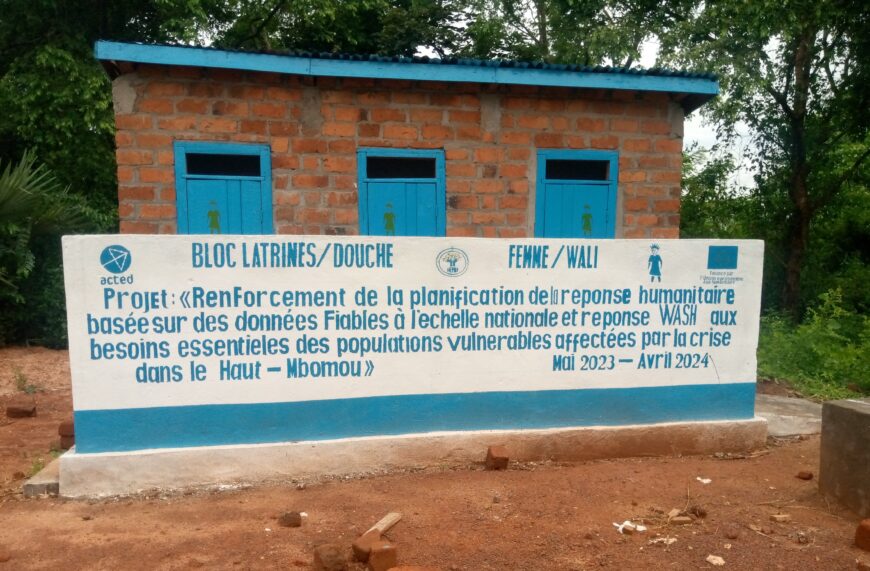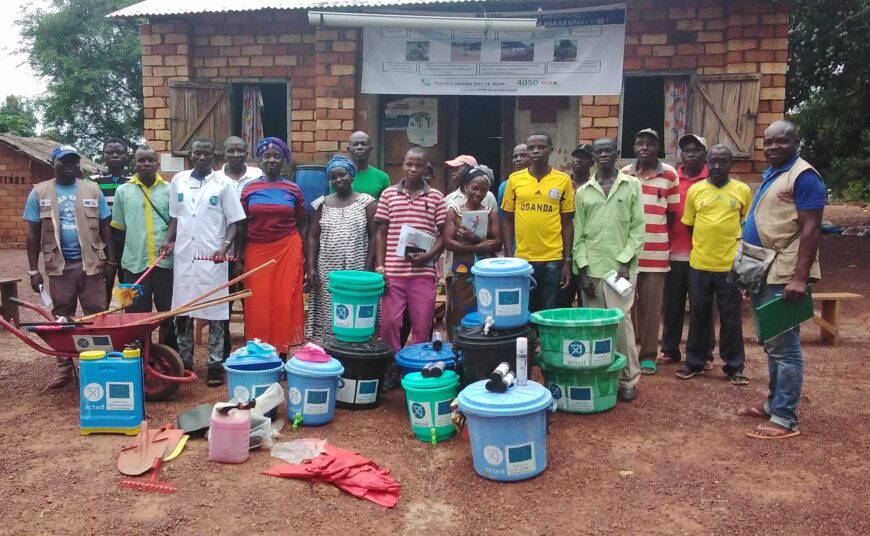Between May 2023 and April 2024, Acted, in partnership with IMPACT Initiatives (IMPACT) and Humanitaires Engagés pour un Mouvement Libre d'Évolution (HELME), and with the support of the European Union's Humanitarian Aid Department (ECHO), carried out a project to meet the vital Water, Hygiene and Sanitation (WASH) needs of vulnerable populations affected by the crisis in Haut-Mbomou. This initiative relies on reliable data collected through multi-sectoral assessments and specialized mapping, to ensure an adapted and effective response to the needs of the most vulnerable populations.
A prolonged crisis in the Central African Republic
In the Central African Republic (CAR), the humanitarian crisis continues to be marked by persistent armed conflict, massive population displacement and chronic poverty. In the Haut-Mbomou region, basic infrastructure has seriously deteriorated, exacerbating difficulties of access to essential services. Assessments carried out by IMPACT in 2023 and 2024 revealed the extent of these needs. Over 58% of households report not having enough drinking water, and 68% of households do not have access to improved latrines in the prefecture, highlighting the urgent need for WASH interventions to prevent water-borne diseases and improve people’s quality of life. These data show that internally displaced populations, often the most vulnerable, rely mainly on untreated sources and latrines in poor condition. Rehabilitating WASH infrastructure was therefore a priority to meet critical needs and strengthen the resilience of affected communities.
Concrete achievements in Haut-Mbomou
As part of this project, Acted and HELME focused on four localities identified as priorities: Gambatouré, Banangui, Ngouyo and Djéma. These areas were selected on the basis of critical infrastructure gaps identified by the results of multi-sectoral household assessments and additional consultations with the authorities. A total of 2 boreholes equipped with human-powered pumps were built in the Gambatouré and Banangui health posts. Nine blocks of latrines and showers, totalling 27 doors, have been installed in the health facilities of the 4 localities. Medical waste management infrastructures, including 4 Montfort-type incinerators and medical waste pits, have also been installed in local health facilities. In addition, efforts have been made to strengthen local capacities and promote the sustainable management of infrastructures. Four management committees were set up and trained, involving 34 members, including 7 women, to oversee and maintain the facilities. In addition, 5 hygienists were trained and equipped with specific kits to improve hygiene practices in the communities. These actions have directly benefited 17,754 people, or 2,929 households, in line with humanitarian standards.

Reliable data to guide humanitarian action
In parallel with field activities, IMPACT carried out a comprehensive multi-sectoral assessment, covering 66 sub-prefectures and collecting data from 12,400 households. This information was used to produce 16 analysis tools, including flood susceptibility maps and detailed local needs reports. These resources, made available free of charge on the IMPACT Resource Centre, have helped to guide interventions effectively and ensure that resources are allocated where they are most needed.

This project illustrates the importance of close collaboration between international and local players in tackling humanitarian challenges in the Central African Republic. The EHA infrastructures created in the localities of Gambatouré, Banangui, Ngouyo and Djéma have been officially handed over to local authorities, reinforcing their role in the management of essential services. In addition, the management committees formed under the project will play a key role in maintaining and sustaining these facilities, drawing on the training and tools provided.